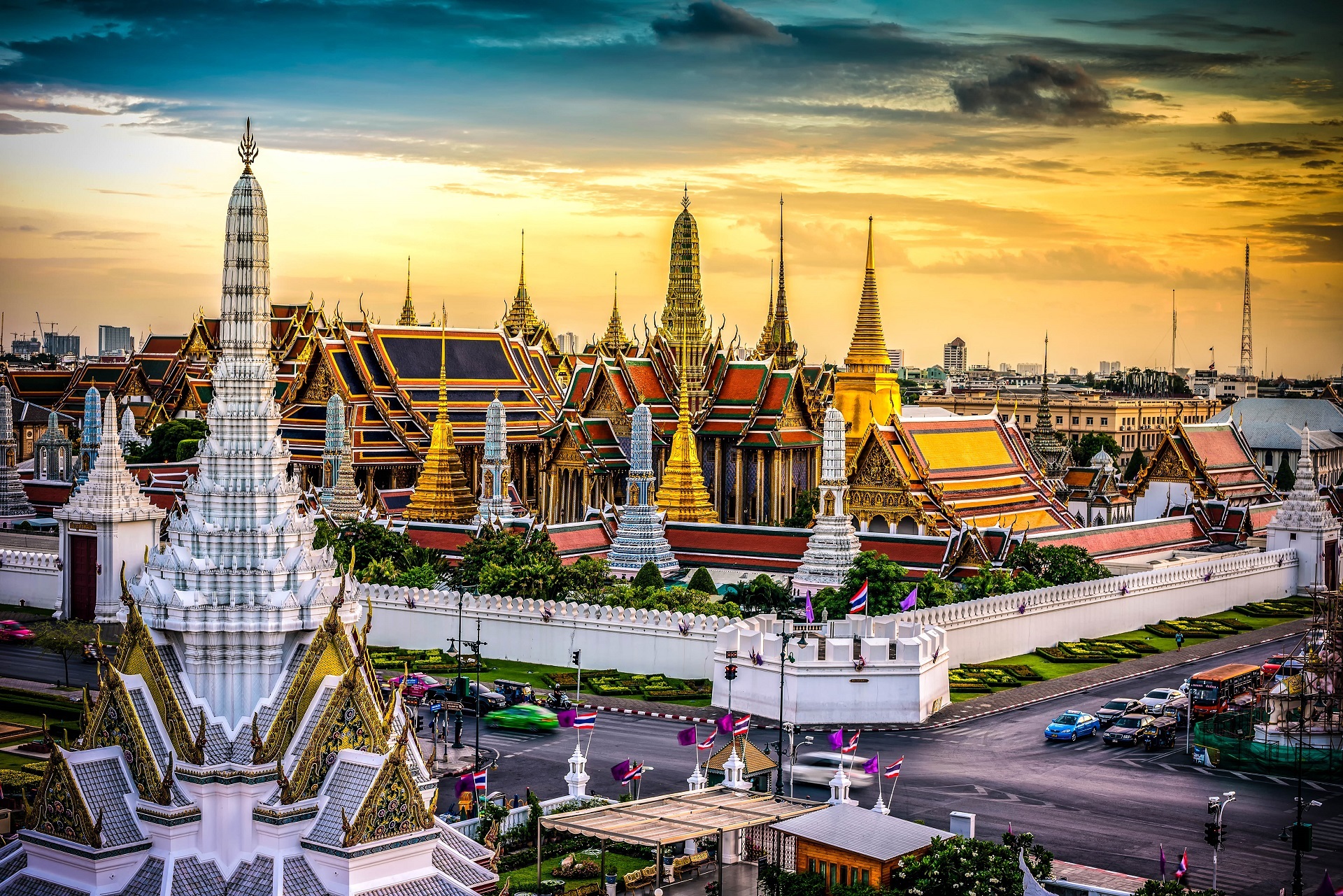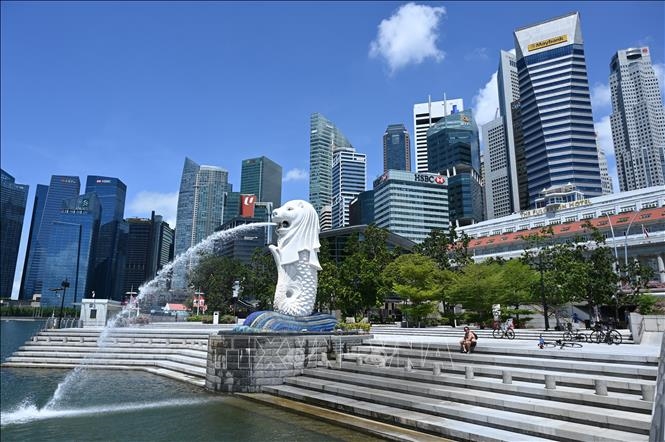China's decision to abandon its rights to host the 2023 AFC Asian Cup raise eyebrows over the 2022 Asian Games - if China relinquishes it as well, who can replace?
A few months ago, three months for precise, China hosted the 2022 Winter Olympics in Beijing, under strict lockdown, despite concerns over China's unwavering commitment to zero-COVID. This temporarily eased worries about China's abilities to host a much smaller, yet equally important, Asian Games in late 2022 in the city of Hangzhou. At least.
But China brought a shock wave to Asian football when the country officially relinquished its rights to host the 2023 AFC Asian Cup on 14 May, citing COVID-19 pandemic is ravaging the nation. This could not come in such a moment like this, given Xi Jinping has continued to commit with zero-COVID strategy and suppressed any dissent at home; thus China has been crippled of a major sporting event, though it was scheduled in summer next year. This has doubled further troubles when the attempted 2022 Asian Games in Hangzhou has also been delayed as well - potentially moved to 2023 or could be even cancelled. And that is not impossible.
In the panic of China's continuation of zero-COVID, the Olympic Council of Asia is scrambling to find potential replacements in case China relinquished its hosting rights like what happened to the Asian Cup. OCA's concerns are dearly legitimate, since they never know when will Xi Jinping really end this very brutal policy, nor even know will China reopen to the world after a series of lockdowns. In case Hangzhou finally relinquishes the rights to host the Games, a new host city must be chosen, but who can in such a short amount of time?
Kuala Lumpur
This is likely come to mind because of a weird question: why has Malaysia not hosted a single Asian Games?
We see Malaysia as a symbol of rising economic successes and, to make it better, the country has hosted the FIFA Youth World Cup back in 1997. It has also offered varieties of facilities that meet international standard. Yet throughout the inception of the Asian Games since 1951, no Malaysian cities have ever hosted the Games despite high economic development, which is quite a sad truth for a country with so much ambitions like Malaysia.
Malaysia needs to ramp up its desire to host the competition if it ever wants to restore its pride as a major Asian economic powerhouse. Kuala Lumpur simply has all: a giant Bukit Jalil National Stadium of 90,000 spectators can be good opening and closing ceremonies. Kuala Lumpur Badminton Stadium, National Aquatic Centre, Royal Selangor Golf Club, Axianta Arena, Stadium Negara, Stars Archery, Kompleks MSN, Esports Quill City Mall and Malaysia Basketball Association Stadium (MABA Stadium) are also definitely worth taking into accounts, not to mention the city's other smaller facilities and maybe other football stadiums from outside the capital, which are also of international standard. The city's roads are also flat and exceptional, and rapid transits are omnipresent in the capital.
Perhaps, if Hangzhou withdraws, Kuala Lumpur has the biggest potential to replace.
Bangkok
The Thai capital has hosted the Asian Games four times, thus very familiar to it. Thailand can also reuse a number of facilities from its most recent hosting in 1998. For example, the Rajamangala Stadium can be again, the opening and closing facilities.
Meanwhile, various Thai sporting facilities are also required, with some slight upgrade. Most notable include New Lumpinee Boxing Hall, Huamark Indoor Stadium, Bangkok Arena, Esports Arena, Rock Domain, Suphachalasai Stadium, World Nax, etc. Since Thailand is no stranger in hosting Asia's sporting competitions, or Bangkok in particular, we can expect it will go smooth for the country.
Of course, there is a need for the current playboy King of Thailand, Vajiralongkorn Rama X, to refresh himself. We last saw him watching a major Asian Games happened in 1998, when his father was still alive.
Mumbai
Mumbai is the largest city in India, and it is still strange to know that despite its rich history, the city has never hosted the Asian Games. India's capital New Delhi has hosted the Games twice, including the inaugural 1951 edition.
To realise the ambitions in India's path to become a global superpower under Narendra Modi, Mumbai is likely to be selected. Brabourne Stadium, D. Y. Patil Stadium, Andheri Sports Complex, Goregaon Sports Club, Mahalaxmi Race Course, Oval Ground, Indoor Basketball Courts, Global Esports, Parsi and Hindu Gymkhana Ground, etc, are some of the proposed facilities of Mumbai.
But while these facilities serve India's grand ambitions, it needs partial to urgent upgrades. At the same time, Mumbai will need to expand its railroad and improve transit across the city if it wants to serve such a big competition like the Asian Games.
Dubai
Dubai is one of the most lively cities in Asia and has also been among the best. Yet comparing to its neighbours Qatar and upcoming Saudi Arabia, Dubai nor the UAE has never hosted an Asian Games, despite its vast wealth and good infrastructures.
Some of Dubai's proposed facilities for the Asian Games include the Tennis Stadium, Hamdan Sports Complex, Jebel Ali Racecourse, Dubai Autodrome, Emirates Golf Club, Al-Maktoum Stadium, Dubai Sports World, etc. Both are worth to host such a gigantic competition, although by standard, the UAE may offer even better or not depending on how it is maintained. Accessing to these facilities are also easier for athletes because of paved roads and developed rapid transits.
Still the city is definitely ready to host the Asian Games in case Hangzhou relinquishes its right. Dubai has been the centre of many international tournaments and meetings, so it can't be ignored.
Singapore
The city-state has been one of the brightest prospect to host the Asian Games. With fairly adequated infrastructures and organised manners, Singapore will be the best destination in replacing of Hangzhou, if it does wish.
Singapore's National Stadium is likely to be the base to host the opening and closing ceremonies, as well as other athletic events. Outside the National Stadium, Singapore also has Indoor Stadium, Kallang Tennis Centre, Jurong West ActiveSG and especially, Garena Stadium, which is the home of the largest Esports facilities in Asia. More is to be underlined, but this can be the chance for Singapore to become the future sporting hub in Asia.
Still, a question to remains: would a city-state be allowed to host such a big event? Singapore has just only hosted the Southeast Asian Games, not Asian Games. Historically, no city-state has ever been awarded the rights to host of any major sporting competitions in the past.
Kuwait City
Kuwait City is also another potential destination. That is possible based on its position in the Gulf region, whose fellow monarchies with similar economic prowess like Saudi Arabia, Qatar and the UAE can also feel happy to follow.
I won't object if Kuwait agrees to host the Games. Jaber Al-Ahmad International Stadium can host both the opening and ending ceremonies. Adailiya Block 4 Sports Complex, Falcon Billiards Lounge, Fahaheel and Sulaibikhat Sports Clubs, Riding Centre, etc, are also potential for the city to become the host of the 2022 Asian Games. Like its GCC brethren, Kuwait also boasts good infrastructures.
Frankly, Kuwait City is also a desirable destination because Kuwait, by standard, is more liberal than the rest of the Gulf Arab monarchies.
Almaty
Almaty is one of the two cities in Kazakhstan that hosted an Asian competition, the Asian Winter Games in 2011. The other is the current capital Astana, now referred by its official name as Nursultan (though most Kazakhstanis still call it Astana).
Therefore, the city has the potential, though far less than those others mentioned in the article, since it hosted the Winter, not Summer competitions, twice (the other being the Winter Universidade in 2017). A needed upgrade will have to be planned, with the Central Stadium has to be reconstructed to meet international standard. Others being Sport Complex Qazaqstan, Velvet Sports Villa, Sports City, as well as Sharik-Marik are also proposed.
But this will be a rather challenging task for the city as Kazakhstan needs to have more adequate budget, or in particular for the city of Almaty to improve. Therefore, the city, while has the possibility, remains to be seen.
Kaohsiung
The city of Kaohsiung in Taiwan is definitely worth to host such a competition. A city combined between ancient tradition and modernity, this city will be able to host, at least.
Facilities like Kaohsiung National Stadium, CKS Martial Hall/Lingya Sports Centre, Fengshan Stadium, Chengqing Lake Baseball Stadium, Kaohsiung Arena, Lide Baseball Stadium, eSports Arena, International Swimming Pool, etc, are possible choice for the city to host such a major game - and in one sense, they are clearly the perfect options. Kaohsiung, like most of Taiwan's modern, developed cities, are well-sustained and able to have budget operated.
If the current political status between Taiwan and mainland China is about to be... stable at least, it won't be a problem for Kaohsiung.
Can Hangzhou be really replaced?
Though, the challenge will be very tough.
A clear reason why Hangzhou was chosen because of the wealth of China. The country has the second largest economy in the world and far more modernised. Any replacement will require a sizeable budget to fill the hole, which is very complicated.
By far, probably Kaohsiung, Singapore, Kuwait City and Dubai can rival that, but this is entirely dependant on which circumstances to be taken. Bangkok is a popular city, but with four editions already been hosted, this leaves the others to think of another choice. Kuala Lumpur possesses a nearly sizeable budget too, but the cost is too high and thus the city has been unwilling to put forward. Mumbai probably falls to a similar issue like Kuala Lumpur. Almaty is not economically strong enough to stand for such a position.
To cities that can replace Hangzhou in a precise blank: Dubai, Singapore and Kaohsiung are on the top of the choices. Kuwait City may be rich but it doesn't have the shine of the rest. However, Singapore's city-state status will prevent the country from hosting due to the lack of necessary ground of expansion and thus Singapore will have to ally with a city from Malaysia, possibly Johor Bahru, but Malaysia has never hosted an Asian Games and Johor Bahru does not have the same budget size like KL. This means only Dubai and Kaohsiung can compete.
Then, Kaohsiung's status to host is questionable. Even when the city is fairly rich, Taiwan's current relations with China is a difficult task. If China becomes furious, given Taiwan is governed by pro-independence DPP, it can use the opportunity to leverage by preventing others from voting Kaohsiung. This means any political tit-for-tat have to be avoided. Dubai, meanwhile, has no political issues with the exception of Iran, but Iran lacks soft power like that of China, thus Iran will be unlikely to oppose Dubai.
In a potential scenario that might exist, Dubai is the best option to host the Asian Games, but that's for us to guess.









Comments
Post a Comment